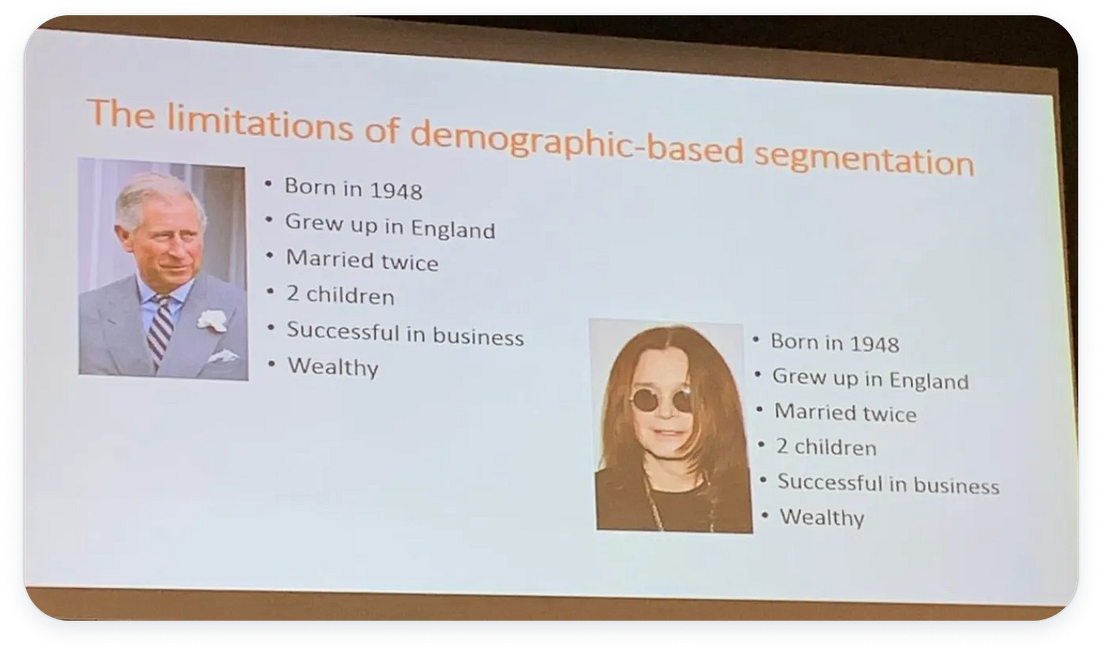Next week, I'm hosting a workshop with the Interintellect community where I’ll get up close and personal on how I build my personal knowledge library.
My goal is to show you how this practice can help you make your work better and more creative. There are very limited spots, but you can sign up here (first come first serve).
Sublime Premium members get free access—coupon codes behind the paywall below.
Here’s what made me go whoa this week:
1. Love any advice that goes against niching down as a way of hyper-optimizing your content strategy. Let the style carry the substance. Flaubert knew:
What seems beautiful to me, what I should most like to do, would be a book about nothing, a book without any exterior ties, but sustained by the internal force of its style . . . a book which would have almost no subject, or at least in which the subject would be almost invisible, if that is possible. The most beautiful works are those with least matter.
Always here for some healthy cosmic perspective
Fuck, this is good, on why we want robots at work but humans in art, via Chris Paik. Tl;dr: in the economy of necessity, humans are friction. In the economy of meaning, they’re the point.
We hate other people when latency becomes intolerable. As soon as a task is about speed, other humans feel like an irritating inconvenience. The Uber driver’s small talk annoys us. We wish we were in a Waymo. The cashier’s tip screen feels like a micro-ransom when all we want is a bottle of water. Elevator operators, switchboard attendants, bank tellers; casualties of our impatience, gone without eulogy. In the economy of necessity, humans are friction, and friction is waste.
But when the stopwatch stops, we flip. We crave other people. Leisure is a hall of mirrors, and only another mortal can polish the glass. A robot could throw perfect strikes forever, but no one would pay to watch. We want the thrill of potential failure. The human tremor that turns repetition into story. Stockfish calculates deeper than Magnus Carlsen, but Carlsen’s fallibility turns calculation into drama. Drama is the premium we pay to feel implicated.
The same rule governs fine dining. Automation could replicate every Michelin-starred dish, but no one would fly across oceans for it. We travel for the scarred forearm that stirred the sauce, for the childhood orchard hidden in the garnish, for the chef’s cameo at the table sealing the story with eye contact. Yet when we order takeout, we tell the driver to leave it at the door just to avoid interaction.
The kind of gems you can only find on Sublime
Daniel Kahneman cooked when he said:
This is so damn accurate re: AI. I think fear of change accounts for the difference. I mostly feel a strange mix of both: thrilled by the possibilities and angry at the world’s dogged insistence on changing so damn much, so damn fast.
Friend of Sublime Yancey Strickler on the difference between an artist and a creator:
An artist is a self-employed self-expressor.
A creator is a self-employed commercial expressor.
I appreciate when tech people acknowledge that “AGI” is not the magic solve for all of our problems. Here is Peter Deng (product leader at ChatGPT, Facebook, Uber) on Lenny’s Podcast (captured via Podcast Magic). I think tech people will be surprised by how little impact AI is going to turn out to have on the subjective experience of day to day human life.
I really, truly, cannot bear the thought of listening to myself speak but Packy is one of my favorite people on the planet and he invited me on his new-ish pod so give it some love!
Accidentally wrote my most viral tweet ever. But honestly, I now think it’s wrong to go through life and not have an experience like this. The closest I got to articulating why is: “it felt like the difference between understanding something intellectually and feeling it in your bones. the journey gave me a wisdom that didn’t come from thinking but from something much deeper..”







